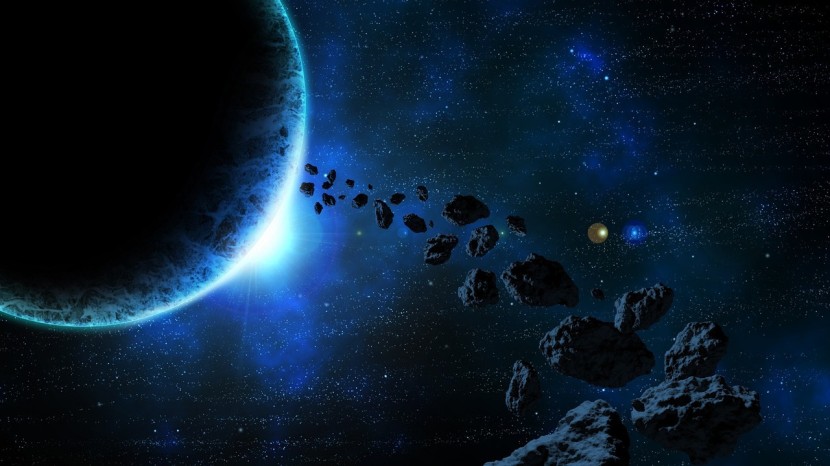
An asteroid with a refrigerator-sized diameter could hit Earth on the day before the November election. However, it is not large enough to result in serious harm.
According to astrophysicist Neil deGrasse Tyson, the space rock named 2018VP1 is dashing towards our planet at a speed of 25,000 miles per hour. It could collide with Earth on November 2.
Asteroid Could Buzz-Cut Earth
The famed scientist posted a photograph of an asteroid hurtling toward Earth. He said it could strike the planet before the November 3 election.
Tyson wrote on Twitter, "Asteroid 2018VP1, a refrigerator-sized space-rock, is hurtling towards us at more than 40,000 km/hr. It may buzz-cut Earth on Nov 2, the day before the Presidential Election."
"It's not big enough to cause harm. So if the World ends in 2020, it won't be the fault of the Universe," he added.
However, the asteroid still has the same infinitesimal probability of striking us which is 0.41%. Even then, it would merely bump into and ignite in the atmosphere.
One of Tyson's 14.3 million followers asked if there is a plan if a larger asteroid was on a path to hit the planet. Tyson replied no but there are actual plans with no funding.
When the space rock first emerged on the Earth's radar in August, the National Aeronautics and Space Administration (NASA) brushed off fears of an impending disaster.
NASA's Planetary Defense Coordination Office wrote on Twitter, "Asteroid 2018VP1 is very small, approx. 6.5 feet, and poses no threat to Earth! It currently has a 0.41 [percent] chance of entering our planet's atmosphere, but if it did, it would disintegrate due to its extremely small size.
The asteroid is slated to make its near approach at 7:33 a.m. ET when it could come as close as 4,776 miles to the Earth's center. It is the asteroid's probable minimum close approach distance.
NASA has been tracing the space rock since it was detected in 2018 by the Zwicky Transient Facility at California's Palomar Observatory. They have been overseeing its progress and identified its date to be near our planet.
According to the space agency, "It currently has a 0.41% chance of entering our planet's atmosphere, but if it did, it would disintegrate due to its extremely small size," reported WDRB.
Another social media user wrote to Tyson that the Universe is technically to be blamed for everything. Tyson responded that the results of the presidential elections are not the Universe's fault.
Due to its minuscule size, scientists have had a difficult time maintaining their track of the space object and laying out its trajectory.
NASA launched its Near-Earth Object Observations Program in 1998. The space agency has since detected an estimated 19,000 objects nearing Earth.
For context, 4,776 miles is equivalent to 2 percent of the average distance between the moon and our planet. It is relatively very close in astronomical terms.
In the unlikely chance that 2018 VP1 moves close to the Earth, it could graze the exosphere or the very outer layer of the Earth's atmosphere. But NASA does not expect the asteroid will strike the planet.
Related Article : NASA Plans to Land First Woman on the Moon in 2024
© 2025 HNGN, All rights reserved. Do not reproduce without permission.








